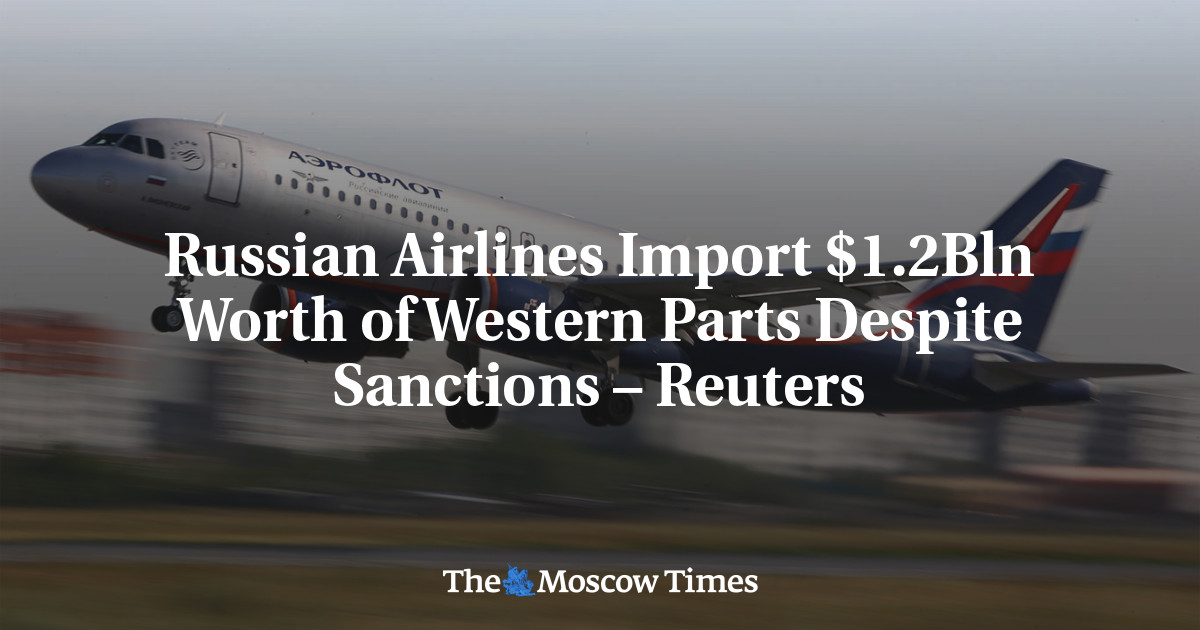
Russian airlines have continued to import spare parts for Western aircraft despite sanctions designed to cut off the flow of key equipment, Reuters reported Wednesday, citing customs data.
Ural Airlines, Norwdind Airlines, S7, Aeroflot and others have imported $1.2 billion worth of spare parts from third parties between May 2022 and June 2023, according to the news agency’s tally.
The actual value of the imports is likely higher as Reuters said its calculations only accounted for direct shipments to Russian airlines and their maintenance units. It did not include shipments to other companies in Russia.
The Russian airlines’ suppliers were located in China, Turkey, the United Arab Emirates, Moldova, Tajikistan and Kyrgyzstan, Reuters said.
The essential spare parts include devices made by U.S. corporation Northrop Grumman as well as cabin pressure valves, cockpit displays, landing gear and water filters. These parts are crucial to keeping Russia’s 541 Boeings, Airbuses and other Western-made planes airworthy.
Russian airlines have about 150 domestically manufactured passenger planes in their fleets.
The country’s airline sector was one of the first to be affected by Western sanctions and the economic fallout from Moscow’s February 2022 invasion of Ukraine.
“At first there was a shock, no one knew what to do,” said Oleg Panteleev, head of the Moscow-based aviation think-tank AvaPort.
“After two to three months, new supply channels were found and, after six or nine months, quite a lot of alternatives appeared, which allowed for a reduction in prices and delivery times,” Panteleev told Reuters.
Air carriers initially faced problems with aircraft maintenance after being cut off from supplies of spare parts and software updates, but Reuter’s report suggests that at least some of these issues have been resolved or mitigated.
The U.S. Department of Commerce and the European Union both told Reuters they were enforcing export controls for Russia’s aviation sector.
“Systems are being put in place in some countries for monitoring, controlling and blocking re-exports,” an anonymous EU official said.